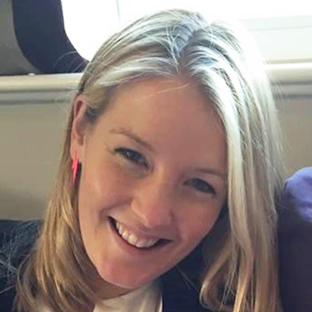I am a self-confessed optimist and the prison reform announcements included in the Queen’s Speech on 18 May made me feel that for the first time the system may just get the overhaul it needs and deserves. This sense was only made stronger by the publication of Dame Sally Coates’ review of prison education.
Tinkering around the edges of prison reform is no use to anyone. In order for us to be truly safe as a society, we need to have a system that works and that is there to truly protect us. This means engaging as many people in custody as possible in purposeful activities, recruiting more prison staff, protecting and valuing them and allowing the experts who have worked in the system for years and years to be the ones at the helm. This is how we will succeed.
While I am not an objective observer, having supported the foundation of the Clink idea – restaurants and now other services working on prison land but open to the public and staffed by people inside – it is a good example of purposeful activity. And one that required a brave imaginative Governor – Peter Dawson – to dare, as Michael Gove has said, to think differently.
“A harebrained idea!” “It couldn’t possibly work!” Just a couple of the phrases thrown our way when the idea of a fine dining restaurant inside a prison was conceived. When people then heard that the paying customer was expected to come in to the prison to pay good money for food prepared and served by our country’s ‘undesirables’, the smirks and giggles were hard to disguise.
I was one of the founding investors of the Clink Restaurant chain and have helped steer its growth ever since, but I do have to admit to also being one of the people in the above camp at the same time. It was a harebrained idea and there were lots of reasons why it couldn’t possibly work.
Four Clinks are now open and operational (book now!) and the fifth is being built this year. They all rank in the top five on Trip Advisor with one being voted the tenth best restaurant in the UK. We have two horticultural programs and an outside catering company. We currently run a reoffending rate of 12.5%, which is appealing to both the taxpayer and the government, as well as the people we work with who want a fresh start in life.
So what is the reason for our success and how have we managed to pull off such a feat? Well it is certainly not by taking away responsibility and stripping prisoners of self worth and pride. It is by doing the exact opposite. And it is not by working against the prison system but working with it. What we are doing is not massively innovative and it’s not revolutionary; that in a way is the point; it is simple and sensible and as a result we get results through treating individuals like human beings.
Prisons are a public service. It is not unreasonable to expect people to come out of prison less likely to offend against society. There are men and women who want to change behind those many inpenetratable walls. We should celebrate this and help them to help themselves.
The Clink represents what can and what is being done to catalyse change. We are working in partnership with the prison service, we serve the paying public inside Her Majesty’s Prison walls, we help individuals to better themselves, to be proud of themselves again and crucially to make sure that those leaving us don’t go on to create more victims once they reach the outside world.
The irony of all of this is that are many organisations wanting to take a similar path and a range of examples of projects working with people when they are inside and on release. But again and again we hear about the restrictions that governors and staff face – some sensible, some not – and the fear of being told by ‘the centre’ how to make decisions. The current prison reform agenda is happening at a time when there is considerable pressure on the service but could, I believe, justify my optimism. Sometimes the mountain seems too high to climb but what I have learnt from The Clink is that the seemingly impossible is most certainly achievable.
Lady Edwina Grosvenor is a prison philanthropist and a founding member of The Clink. She sits on the Future Prison Advisory Board.
Related articles
-
Relative values
Rachel O'Brien
Rachel O’Brien reflects on the call for a focus on rehabilitation by the new Secretary of State for Justice as RSA Radio launches their Rebuilding Life After Prison podcast series
-
Unlocking Skills Inside
James Crabbe
James Crabbe FRSA discusses how the further education sector can play a big role in addressing the UK skills gap and improving outcomes of those in prison.



Be the first to write a comment
Comments
Please login to post a comment or reply
Don't have an account? Click here to register.